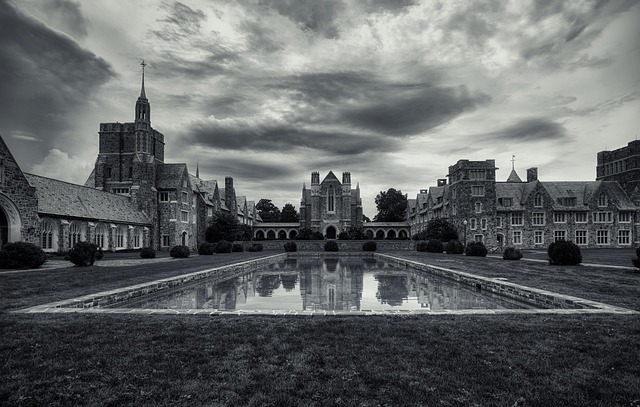Title IX, enacted in 1972, outlaws sex-based discrimination in US education, addressing sexual harassment, assault, and retaliation in SC. Specialized Title IX attorneys are vital for safeguarding students' rights, conducting investigations, and ensuring educational institutions comply with these regulations, especially given the heightened awareness of campus sexual assault. They face challenges in complex legal interpretations, managing sensitive cases, and understanding institutional policies. Key defense strategies include challenging accuser credibility and questioning incident timing. Successful cases demonstrate their impact; resources and networking support practitioners in effectively navigating Title IX litigation in SC.
In South Carolina, as across the nation, Title IX attorneys play a crucial role in addressing sexual violence claims on college campuses. This article explores the complex landscape of Title IX litigation in the state, delving into the challenges faced by local attorneys and the strategic defenses they employ. From understanding the law’s reach to examining notable case studies, we provide insights for both legal professionals and individuals navigating this critical area. Discover expert guidance on navigating Title IX claims in South Carolina.
Understanding Title IX and its Relevance in South Carolina

Title IX, a landmark federal law enacted in 1972, has had a profound impact on addressing sexual violence and discrimination in educational institutions across the United States, including South Carolina. This legislation prohibits sex-based discrimination in any education program or activity receiving federal financial assistance. The law is particularly relevant in South Carolina when dealing with allegations of sexual harassment, assault, or retaliation within schools, colleges, and universities.
South Carolina attorneys specializing in Title IX cases play a crucial role in protecting the rights of students and ensuring educational institutions adhere to these regulations. They assist clients who have experienced sexual violence by providing legal guidance, conducting investigations, and advocating for their rights to due process and equal opportunity in education. With the increasing awareness and scrutiny surrounding campus sexual assault, having knowledgeable Title IX attorneys is essential for both victims seeking justice and institutions striving to uphold compliance.
Common Challenges Faced by South Carolina Attorneys in Title IX Cases

South Carolina attorneys specializing in Title IX cases often encounter several unique challenges. One of the primary difficulties is navigating complex legal interpretations of this federal anti-discrimination law, which requires schools to address sexual violence and ensure a safe learning environment. Attorneys must stay updated on evolving case law and regulations to build robust defenses for their clients.
Another challenge lies in managing the sensitive nature of these cases. Title IX allegations often involve emotional and traumatic experiences, requiring attorneys to handle evidence and testimony with care. Effective communication and strategic legal arguments are essential to protect the rights of the accused while ensuring a fair process. South Carolina’s specific educational landscape and institutional policies also demand meticulous attention to detail, as attorneys must thoroughly understand school procedures and responses to allegations of sexual misconduct.
Legal Strategies for Defending Against Sexual Violence Claims

When facing Title IX sexual violence claims in South Carolina, legal strategies must be tailored to address the unique challenges presented by such cases. A key defense strategy is challenging the credibility of the accuser and presenting evidence that discredits their version of events. This involves thorough investigation, including interviewing witnesses, reviewing surveillance footage or other relevant records, and gathering expert testimony to undermine the accuser’s narrative.
Another effective approach is questioning the timing and circumstances of the reported incident. Title IX attorneys in South Carolina often argue that the complaint was made too long after the alleged event, suggesting a lack of genuine belief or intention to pursue legal action. They may also raise doubts about whether the conduct constituted sexual violence as defined by Title IX regulations, emphasizing the importance of clear and consensual boundaries in educational settings.
Case Studies: Notable Success Stories in South Carolina

In South Carolina, Title IX attorneys have been instrumental in navigating complex legal landscapes surrounding sexual violence claims. Several notable success stories highlight their expertise and dedication. For instance, a leading Title IX attorney in Charleston successfully represented a student who faced severe retaliation after reporting sexual assault. Through meticulous documentation and strategic legal arguments, the attorney secured a favorable settlement, ensuring the victim’s rights were protected and setting a precedent for future cases.
Another compelling case involves a college student in Columbia who was wrongfully accused of sexual misconduct. A skilled Title IX lawyer defended the student, exposing procedural errors and lack of evidence. This thorough defense led to the dismissal of charges, demonstrating the attorney’s ability to safeguard individuals from unfair accusations and their reputation as champions for justice. These success stories reflect the impact of competent legal representation in addressing sensitive issues related to sexual violence under Title IX.
Resources and Support for Attorneys Navigating Title IX Litigation

Navigating Title IX litigation can be complex and emotionally charged for attorneys in South Carolina. To effectively defend against sexual violence claims, legal professionals must stay informed about the latest legal precedents and best practices. Many resources are available to support them in this process. Legal aid organizations and bar associations often offer workshops, webinars, and training sessions specifically tailored to Title IX attorney issues, ensuring practitioners are equipped with up-to-date knowledge.
Additionally, networking opportunities within the South Carolina legal community facilitate information sharing among peers. These connections can provide invaluable insights into handling sensitive cases while adhering to the stringent requirements of Title IX legislation. By tapping into these resources and fostering a supportive professional network, South Carolina attorneys can better represent their clients and contribute to ensuring fairness and justice in Title IX cases.




